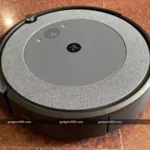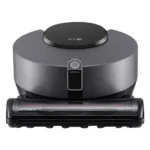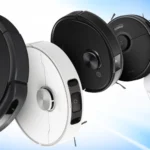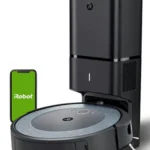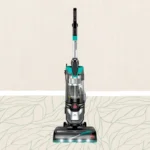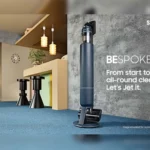Have you ever wondered why your smart vacuum cleaner doesn’t seem to pick up all the dirt and dust in your home despite running for hours? The answer could be as simple as having the wrong type of filters. Filters play a crucial role in trapping airborne particles and preventing them from being released back into your home. With so many different types of filters available, it can be overwhelming to choose the right one for your smart vacuum cleaner. In this article, we will explore the importance of filters, the different types available, factors to consider when choosing filters, and how to clean and maintain them. By the end of this article, you will be equipped with the knowledge needed to choose the right type of filters to maximize the performance of your smart vacuum cleaner.
Why Are Filters Important for Your Smart Vacuum Cleaner?
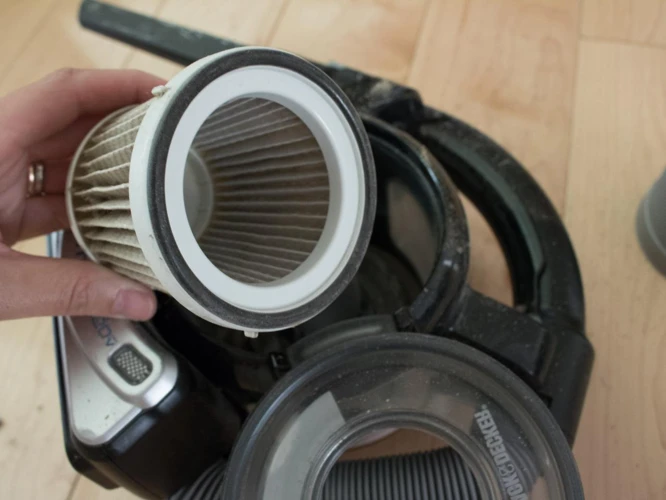
Filters play a vital role in enhancing the performance of your smart vacuum cleaner. They are important because they help to keep the air in your home clean and healthy by trapping and removing harmful particles and contaminants that can cause various allergic reactions and health problems.
Advantages of Filters
Filters offer several advantages for your smart vacuum cleaner. First, they prevent allergens and harmful pollutants from spreading back into your home while vacuuming. They also improve the air quality in your home, which is particularly important for people suffering from respiratory issues like asthma and allergies. Filters help to maintain the performance of your vacuum cleaner by preventing the accumulation of dust and debris in the motor, prolonging its lifespan.
Types of Contaminants Filters Protect Against
Filters are designed to protect against a wide range of contaminants commonly found in homes such as dust, pollen, pet dander, mold spores, and even bacteria. Some filters are also designed to remove odors and gases from the air, such as carbon filters.
Impact of Poor Filters on Smart Vacuum Cleaners
Using poor quality filters or not changing them regularly can have a negative impact on the performance of your smart vacuum cleaner. The accumulation of dust and debris can cause the motor to overheat and reduce its suction power. It can lead to the release of harmful particles back into the air, leading to various health problems.
In order to get the most out of your vacuum cleaner, it is essential to choose the right type of filters that can handle the types of contaminants commonly found in your home.
If you are on a budget and looking for a good quality smart vacuum cleaner under $200, you can check out our top picks for budget-friendly vacuums.
To learn about smart vacuum maintenance tips to prolong the lifespan of your device, check out our article on smart vacuum maintenance.
One common mistake to avoid is replacing the brush roller too frequently. Learn more about smart vacuum brush roller replacement in our article on smart vacuum brush roller replacement.
Advantages of Filters
Filters are important components of smart vacuum cleaners that serve to trap particles that would otherwise escape into the air due to the vacuuming process. One of the main advantages of filters is the fact that they help to improve indoor air quality by trapping small particles like pollen, pet dander, and dust mites. This is especially important for individuals with allergies or respiratory issues.
In addition to improving indoor air quality, filters also help to extend the lifespan of your smart vacuum cleaner by protecting the motor and internal components from damage. By trapping dirt and debris, filters prevent these particles from entering the motor and other parts of the vacuum where they can cause damage over time. This means that your vacuum cleaner will be more reliable and last longer if you regularly clean and replace the filters.
Furthermore, using filters in your smart vacuum cleaner can save you money in the long-term. By protecting your vacuum’s motor and internal components, you can avoid costly repairs and replacements down the line. Well-maintained filters can also help your vacuum cleaner run more efficiently, which can reduce energy consumption and lower your utility bills.
Lastly, filters are essential for maintaining a healthy and clean home environment. Homes with pets and small children especially benefit from the use of filters. Pet hair and dander, as well as the dirt and debris that children track into the home, can easily be picked up by a smart vacuum cleaner with a reliable filter system, greatly reducing the amount of allergens and irritants in your home.
The advantages of filters in your smart vacuum cleaner cannot be overstated. They help to improve indoor air quality, extend the lifespan of your vacuum, save you money, and ensure a healthy and clean home environment. To maximize the benefits of using filters in your smart vacuum cleaner, it is important to choose the right type of filter and regularly clean and replace them. For more tips on smart vacuum maintenance, check out our helpful maintenance guide.
Types of Contaminants Filters Protect Against
When it comes to keeping your home clean, there are various kinds of contaminants that can accumulate inside your house, such as dirt, dust, pet hair, and allergens. Filters play an important role in keeping these contaminants at bay, making sure that the air you breathe is clean and safe. Below are the types of contaminants that filters protect against:
Dirt and Dust: Dirt and dust are the most common types of contaminants found in households. These tiny particles can cause allergies, respiratory problems, and other health issues. A good quality filter traps dirt and dust inside the vacuum, ensuring that they do not escape back into the air.
Pet Hair and Dander: If you have pets at home, you know how difficult it can be to keep your floors and carpets clean. Pet hair and dander can be a nuisance, especially if you or your family members are allergic to them. A filter that is designed specifically for pet hair and dander can help trap pet allergens and prevent them from circulating in the air.
Allergens: Allergens such as pollen, mold spores, and dust mites can trigger allergies and other respiratory problems. HEPA filters are highly effective at trapping these tiny particles, preventing them from being released back into the air you breathe. If anyone in your household suffers from allergies, it is highly recommended to use a vacuum cleaner with a HEPA filter.
Bacteria and Viruses: While vacuum cleaners are not designed to kill bacteria and viruses, some filters can trap these microorganisms, preventing them from circulating in the air. Carbon filters, for example, have antimicrobial properties that can help reduce the growth of bacteria and viruses.
Mold: Mold can grow in damp and humid areas, and can cause serious health problems if left unchecked. A vacuum cleaner with a HEPA filter can help prevent the spread of mold spores, so it’s important to choose a vacuum cleaner with a filter that can effectively deal with mold.
It is important to choose the right type of filter based on the contaminants in your home. By understanding the types of contaminants that filters protect against, you can choose a filter that is best suited for your needs. Don’t forget to regularly clean and replace your filters to ensure that your smart vacuum cleaner is always working at its best. For more tips on maintaining your smart vacuum cleaner, check out our smart vacuum maintenance mistakes to avoid guide.
Impact of Poor Filters on Smart Vacuum Cleaners
Poor filters for your smart vacuum cleaner can have a significant impact on the performance of the device. Inefficient filters can lead to poor suction power and poor air quality, which eventually result in unsatisfactory cleaning. The filter in a smart vacuum cleaner is responsible for trapping dust, dirt, pollen, pet dander, and other contaminants while cleaning. If the filter is clogged or poorly designed, it can reduce airflow and cause the vacuum cleaner’s motor to overheat, shortening its lifespan.
If you ignore the importance of filters in the smart vacuum cleaner, you might face adverse health effects. Poor filters cannot prevent small particles from getting back into the air, circulating throughout your home, and potentially causing allergies or other health issues. Thus, it’s crucial to use quality filters that can capture almost all of the impurities.
To avoid these problems, it’s recommended to always use high-quality filters, and most importantly, clean or replace them regularly. As a rule of thumb, filters should be cleaned every one to three months, depending on usage frequency and the number of contaminants they trap. Carrying out regular maintenance and ensuring that filters are functioning at optimal levels can save you money in the long run. Not only will it keep your smart vacuum cleaner from constant repair and replacement, but it can also prevent any significant breakdowns caused by poorly maintained filters.
It’s always best to take the time to research your vacuum’s filters before making a purchase. Investing in quality filters that suit your smart vacuum cleaner can help improve its life expectancy and ultimately save you money in the long run. If you notice any decrease in suction power or that your vacuum is leaving behind more dirt than usual, it might be time to check and replace your filters. By following these simple tips and keeping your filters clean, you can ensure that your smart vacuum cleaner runs efficiently and effectively, leading to a cleaner and healthier home. For more smart vacuum tips, take a look at our article on 5 Smart Vacuum Tips.
Types of Filters for Smart Vacuum Cleaners
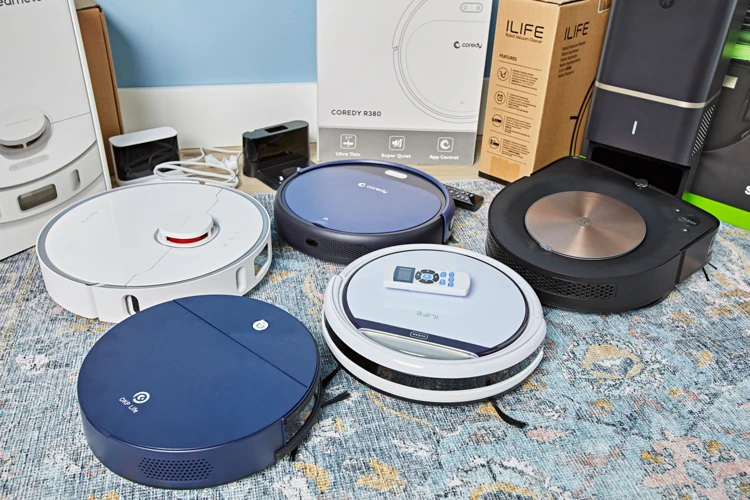
Smart vacuum cleaners use different types of filters to ensure efficient cleaning and removal of contaminants. Choosing the right type of filter for your smart vacuum cleaner is important in ensuring that your device performs effectively and efficiently.
Pre-Motor Filters: As the name suggests, pre-motor filters are filters that are installed before the motor of the smart vacuum cleaner. They are designed to protect the motor from dust and other contaminants that could damage it. Pre-motor filters are usually made of foam, felt or other materials that are washable and reusable. It is important to clean these filters regularly to ensure that the motor is protected and that the vacuum cleaner performs optimally.
Post-Motor Filters: Post-motor filters are installed after the motor of the vacuum cleaner. These filters are designed to trap any fine dust particles that may have been sucked into the vacuum cleaner, ensuring that only clean air is released. They are usually made of paper or other materials that are disposable and need to be replaced periodically.
HEPA Filters: HEPA filters are some of the most popular filters for smart vacuum cleaners. These filters are designed to remove over 99.97% of dust, dirt, and other contaminants in the air. They are particularly effective in removing small particles that other filters may not capture. HEPA filters are typically made of dense fine mesh that can effectively trap small particles.
Carbon Filters: Carbon filters, also known as activated carbon filters, are used to remove odors and gases from the air in addition to dust and dirt. These filters contain activated carbon, which is known for its ability to absorb gases and odors from the air. Carbon filters are often used in vacuum cleaners meant for pet owners to remove pet odors from the air.
It is important to note that some smart vacuum cleaners may come with all of the aforementioned filters while others may come with only one or two types of filters. It is essential to choose the type of filter that best fits your cleaning needs and is compatible with your smart vacuum cleaner.
Remember, choosing the right filter for your smart vacuum cleaner is critical to the performance and longevity of the device. Neglecting to choose the appropriate filter can lead to a reduction in suction power, which could subsequently translate to poor cleaning results. To learn more about how smart vacuum cleaners can save you money in the long run, check out our article on /smart-vacuum-cleaner-long-term-savings/.
In the next section of this article, we will discuss what factors to consider when selecting filters for your smart vacuum cleaner. If you are experiencing issues with your smart vacuum cleaner, you can also check out our guide on /smart-vacuum-diy-troubleshoot/ or contact the manufacturer for warranty repair at /smart-vacuum-warranty-repair/.
Pre-Motor Filters
Pre-motor filters are an essential component of any smart vacuum cleaner. These filters are typically made of foam or felt material and are designed to trap larger particles before they reach the motor. By preventing debris from entering the motor, pre-motor filters help prevent damage and extend the lifespan of your vacuum cleaner.
The Importance of Pre-Motor Filters
Pre-motor filters play a crucial role in maintaining the overall health and functionality of your smart vacuum cleaner. Since they trap larger particles, such as dust, hair and debris, they prevent these contaminants from entering the motor and causing damage. Without a pre-motor filter, your vacuum cleaner motor would be vulnerable to clogging and overheating, potentially leading to the need for costly repairs or replacement.
The Different Types of Pre-Motor Filters
There are several types of pre-motor filters available for smart vacuum cleaners. Foam filters are the most common, and they are typically washable and reusable. Felt filters are another option, and are generally designed to be replaced more frequently than foam filters. Some smart vacuums also have washable mesh pre-filters, which are designed to capture larger particles before they reach the main pre-motor filter.
Choosing the Right Pre-Motor Filter
When selecting a pre-motor filter for your smart vacuum cleaner, it’s important to consider the type of vacuum cleaner you have and the type of contaminants you need to filter out. For example, if you have pets or a lot of carpeted areas in your home, you may want to choose a pre-motor filter that is designed specifically to capture pet hair and dander. You should consider the lifespan and replacement cost of the filter, as some filters need to be changed more frequently than others.
Cleaning and Replacing Pre-Motor Filters
To keep your smart vacuum cleaner running smoothly, it’s important to clean and replace the pre-motor filter on a regular basis. Foam filters can be washed and reused, while felt filters should be replaced every few months or as recommended by the manufacturer. It’s also a good idea to check the pre-motor filter periodically for signs of damage or wear, and to replace it immediately if it appears to be dirty or damaged. By following these simple steps, you can ensure that your smart vacuum cleaner is equipped with the right pre-motor filter to keep your home clean and healthy.
Post-Motor Filters
When it comes to smart vacuum cleaners, post-motor filters are an essential component. These filters work to capture any particles that may have made their way through the system during cleaning.
What are Post-Motor Filters?
Post-motor filters are typically made of foam or felt material and are located near the motor of the vacuum cleaner. As the air is drawn through the vacuum and passes through the motor, the post-motor filter captures any particles or dust that may be present.
Advantages of Post-Motor Filters
Post-motor filters offer several advantages. Not only do they help to keep your indoor air quality higher, but they also prevent dust and debris from entering the motor itself which could cause damage or reduce the vacuum’s suction power.
Types of Post-Motor Filters
There are several types of post-motor filters available for smart vacuum cleaners. Some vacuums may have a single post-motor filter while others may have multiple filters. Some popular types of post-motor filters include:
- Foam Filters: Foam filters are the most common type of post-motor filter. They are washable and reusable, making them an eco-friendly option. However, they do need to be replaced periodically to maintain optimal performance.
- Felt Filters: Felt filters are another type of post-motor filter that may be used. They are also washable and reusable, but may not last as long as foam filters.
- HEPA Filters: While HEPA filters are more commonly used as pre-motor filters, some vacuum cleaners may also have a HEPA post-motor filter. These filters are highly effective at trapping even the smallest particles, making them ideal for those with asthma or allergies.
When to Replace Post-Motor Filters
Like all filters, post-motor filters need to be replaced periodically to ensure that your vacuum cleaner is performing optimally. The lifespan of a post-motor filter will vary depending on the type of filter and how often the vacuum is used. As a general rule, it’s a good idea to replace the filter every six months or as recommended by the manufacturer.
Conclusion
When it comes to keeping your smart vacuum cleaner running smoothly, post-motor filters are an essential component. By choosing the right type of filter and replacing it regularly, you can ensure that your vacuum cleaner continues to perform at its best while also improving your indoor air quality.
HEPA Filters
One of the most popular and effective types of filters for smart vacuum cleaners is the High-Efficiency Particulate Air (HEPA) filter. These filters are known for their ability to capture even the smallest of particles, including pet dander, pollen, and dust mites. They are particularly beneficial for allergy sufferers, as they can help reduce allergen levels in the home.
HEPA filters are made of very fine mesh that can trap particles as small as 0.3 microns in size. They work by using a combination of mechanical and electrostatic forces to capture contaminants. As air passes through the filter, the particles become trapped in the mesh, preventing them from re-entering the air.
HEPA filters are available in a variety of styles, including replaceable and washable versions. Replaceable filters need to be replaced periodically, depending on usage, while washable HEPA filters can be cleaned and reused multiple times.
It’s worth noting that while HEPA filters are highly effective, they can also slightly reduce a vacuum’s suction power. This is because the fine mesh can create some resistance to airflow. However, many manufacturers have designed their vacuums to work optimally with HEPA filters, ensuring the best possible balance between suction power and filtration.
If you’re looking for a vacuum cleaner with powerful filtration, a model with a HEPA filter is a great choice. They are especially beneficial for those with allergies or respiratory issues, as well as households with pets or children. When shopping for a vacuum, look for one with a tested and certified HEPA filter to ensure that you get the best possible performance.
Carbon Filters
Carbon filters are another type of filter that is commonly used in smart vacuum cleaners. These filters are effective at removing odors and harmful chemicals from the air that passes through them. They are made from activated carbon, which is a form of carbon that has been treated with oxygen to make it extremely porous. This pore structure allows the carbon to absorb and trap harmful gases, chemicals, and odors.
Advantages of Carbon Filters
One of the primary advantages of carbon filters is that they can effectively remove unpleasant odors from the air. This is particularly important in homes with pets or smokers, as these odors can be difficult to eliminate. Carbon filters are also effective at removing harmful chemicals and gases from the air, making the air in your home cleaner and healthier to breathe.
Limitations of Carbon Filters
While carbon filters are effective at removing odors and chemicals from the air, they are not as effective at removing small particles like dust and pollen. For this reason, they are often used in conjunction with HEPA filters in smart vacuum cleaners to provide comprehensive air filtration.
Factors to Consider When Choosing Carbon Filters
When choosing carbon filters for your smart vacuum cleaner, there are a few factors to consider. Firstly, you should consider the size and shape of the filter to ensure that it fits properly in your vacuum cleaner. You should also consider the quality of the filter and the brand that you are purchasing from to ensure that you are getting a high-quality product that will effectively filter the air in your home.
How to Clean and Maintain Carbon Filters
Cleaning and maintaining carbon filters is relatively simple. The best way to clean them is to gently vacuum them with a soft brush attachment. You should also replace carbon filters regularly to ensure that they continue to effectively filter the air in your home. The frequency of replacement will depend on the amount and type of contaminants that are present in your home.
Conclusion
Carbon filters are an effective type of filter that can help to remove odors and harmful chemicals from the air in your home. While they are not as effective at removing small particles as HEPA filters, they can be used in conjunction with HEPA filters to provide comprehensive air filtration. When choosing carbon filters for your smart vacuum cleaner, consider the size and shape of the filter, the quality of the product, and the frequency of replacement.
Factors to Consider When Choosing Filters for Your Smart Vacuum Cleaner
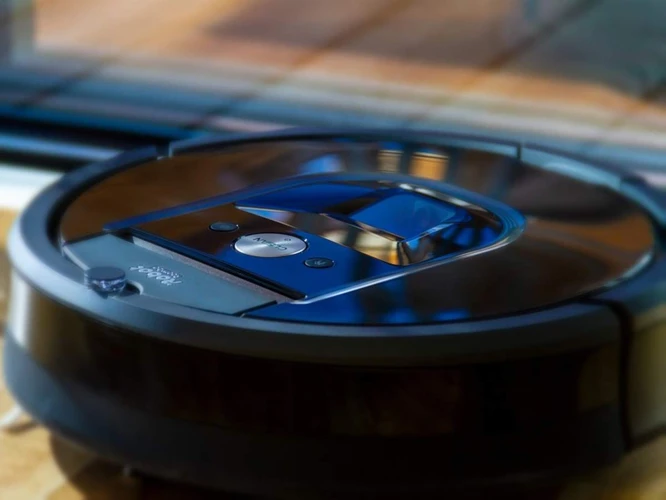
When choosing the right type of filters for your smart vacuum cleaner, there are several factors to consider in order to ensure optimal performance.
Type of Vacuum Cleaner: The type of vacuum cleaner you own will influence the type of filter you need. Canister vacuum cleaners typically require both pre-motor and post-motor filters, while upright vacuum cleaners usually only need a single filter. The type of smart vacuum cleaner you have will often dictate which filters are recommended by the manufacturer.
Type of Floor: The type of floor in your home can also affect your filter needs. If you have carpeted floors, you may want to consider a filter that captures smaller particles like pet dander or dust mites. If you have hardwood or tile floors, a filter that captures larger debris like hair and dirt may be more appropriate. Certain filters are designed to work more effectively on different types of surfaces.
Type of Contaminants in Your Home: The type of contaminants in your home will also affect your filter choice. If you have pets, you may want to consider a HEPA (High Efficiency Particulate Air) filter that captures pet dander and other allergens. If you suffer from allergies, you may want to consider a filter that captures pollen and other airborne allergens. If you live in an area with high pollution, an activated carbon filter can help remove harmful airborne particles.
Filter Lifespan and Replacement Cost: It’s important to consider the lifespan of your filter and the cost of replacing it. Pre-motor filters typically need to be replaced more frequently than post-motor filters. HEPA filters have a longer lifespan but can be more expensive to replace. Some manufacturers may offer discounts or subscription services for filter replacements.
When selecting filters for your smart vacuum cleaner, it’s important to take into account all of these factors to ensure that you choose the right filters for your needs. By using the proper filters, you can prolong the life of your vacuum cleaner, improve indoor air quality, and reduce the potential for respiratory issues caused by airborne contaminants.
Type of Vacuum Cleaner
When choosing the right type of filters for your smart vacuum cleaner, the type of vacuum cleaner you have should be one of the key factors to consider. Different types of vacuum cleaners require different types of filters to function properly.
Upright Vacuum Cleaners: These vacuum cleaners generally come equipped with a pre-motor filter and a post-motor filter. The pre-motor filter is responsible for filtering out large dust and debris particles before they reach the motor. The post-motor filter, on the other hand, filters out fine particles, including pet dander, mold spores, and dust mites that are expelled from the vacuum back into the air. Some upright vacuum cleaners also come with HEPA filters to capture tiny particles as small as 0.3 microns.
Canister Vacuum Cleaners: These vacuum cleaners also come with pre-motor and post-motor filters; however, the filters are usually located in a different location than those of upright vacuum cleaners. Canister vacuum cleaners usually have a more powerful motor than upright vacuum cleaners, which means that they generate more suction power. As a result, their filters have to be more efficient in capturing even the smallest of particles.
Robot Vacuum Cleaners: Most robot vacuum cleaners come equipped with a pre-motor filter, and some even come with HEPA filters. Since robot vacuums are designed to be low-profile and compact, their filters are usually smaller in size compared to those of upright and canister vacuum cleaners. This can make maintenance more frequent since their filters fill up quicker.
Stick Vacuum Cleaners: These vacuum cleaners are lightweight and perfect for quick cleanups. They typically have a smaller motor than upright and canister vacuums, which means that their filters don’t have to be as efficient in capturing small particles.
Handheld Vacuum Cleaners: These vacuum cleaners are the smallest and typically don’t have as many filter options compared to other vacuum cleaners. Their filters are generally limited to pre-motor filters that filter out large particles.
Ultimately, the type of vacuum cleaner you have will determine the type of filters that you need to buy. It’s important to check your owner’s manual to determine what kind of filters your vacuum cleaner requires.
Type of Floor
When choosing the right type of filter for your smart vacuum cleaner, one important factor to consider is the type of floor you have in your home. Different types of floors require different types of filters to effectively remove dust, dirt, and other contaminants.
If you have hardwood floors in your home, you’ll want to choose a filter that is specifically designed for capturing fine dust particles. HEPA filters are a great choice for hardwood floors because they can trap even the smallest particles, such as pet dander and pollen.
On the other hand, if you have carpeted floors, you’ll need a filter that can effectively capture larger particles. Look for filters that are designed with multiple layers or that have a high efficiency rating to ensure that they can effectively capture dirt, dust, and allergens.
If you have tile floors, you may want to consider a filter that is designed to capture both fine particles and larger debris. Carbon filters are a great option for tile floors because they can remove odors and other contaminants that can often be trapped in the grout between tiles.
It’s important to note that some filters may not be suitable for certain types of floors. For example, using a HEPA filter on a high-pile carpet may cause the vacuum cleaner to lose suction power. Be sure to consult the manufacturer’s recommendations for your specific vacuum cleaner model and floor type.
By taking into consideration the type of floor you have in your home, you can choose the right filter that will effectively remove contaminants and maintain the cleanliness of your floors.
Type of Contaminants in Your Home
Knowing the type of contaminants present in your home is crucial when choosing the right type of filter for your smart vacuum cleaner. Various types of contaminants can enter your home, such as dust, pet hair, pollen, mold spores, bacteria, and even viruses. Each contaminant poses specific challenges to the air quality in your home, which can potentially affect your health or worsen allergies.
Dust is the most common household contaminant which can come from a range of different sources. Dust may include tiny fibers from fabrics, pollen, mold spores, and even insect or animal dander. If left unfiltered, dust can cause allergies, irritate your eyes, and worsen asthma.
Pet hair is another contaminant that can create problems in your home. It requires a specific type of filter to collect pet hair and pet dander, which can potentially cause allergies, skin irritations and respiratory issues.
Pollen and mold spores are allergens that can affect people with seasonal allergies, leading to hay fever and other upper respiratory problems.
Bacteria and viruses are other contaminants that can cause adverse health effects, especially during the flu season. They require filters with special features that can effectively capture these harmful microorganisms.
It is essential to choose filters that address the specific contaminants present in your home. This can be determined by conducting a simple indoor air quality test, which can be purchased online or at your local hardware store. A professional contractor can also perform the test for you. Knowing what contaminants you’re dealing with will help you choose the most effective filter for your smart vacuum cleaner.
Filters Lifespan and Replacement Cost
The lifespan of filters is a crucial factor to consider when choosing the right type of filters for your smart vacuum cleaner. The filters’ replacement cost is another important consideration that you should keep in mind. The length of time that the filters will last depends on the frequency of usage, the type of contaminants being filtered, and the quality of the filter itself.
Filters Lifespan: The lifespan of filters can range from a few months to a year or more. The pre-motor filters and post-motor filters tend to last longer than the HEPA and carbon filters due to their design and purpose. However, the lifespan of each filter may vary depending on the brand and the quality of the filter. It’s essential to check your vacuum cleaner’s user manual or the filter’s packaging for the recommended filter replacement timeline.
Cost of Replacement: The cost of replacing filters can add up over time, so it’s crucial to factor in the filters’ replacement costs when purchasing a smart vacuum cleaner. Generally, pre-motor and post-motor filters are more affordable than HEPA and carbon filters. It’s essential to choose a vacuum cleaner that also offers affordable replacement filters, to help save on maintenance costs.
The Importance of Regular Filter Replacement: Regular filter replacement is vital for the overall performance and lifespan of your smart vacuum cleaner. Over time, filters become full of debris and contaminants, and their ability to trap and filter pollutants diminishes. Lack of filter replacement could damage the vacuum cleaner over time, reducing its suction power or leading to costly repairs. Plus, dirty filters can cause allergens, dust, and pet dander to disperse back into your home’s air, causing respiratory issues.
It’s important to consider the lifespan and replacement costs of filters when selecting the right filters for your smart vacuum cleaner. Replacing these filters regularly is necessary to ensure optimal cleaning power, maintain indoor air quality, and extend the vacuum cleaner’s lifespan.
How to Clean and Maintain Your Filters
Keeping your smart vacuum cleaner filter clean and well-maintained is crucial for optimal performance and longevity of your machine. In this section, we’ll guide you through the process of cleaning and maintaining your smart vacuum cleaner filters.
Cleaning Pre-Motor Filters:
Pre-motor filters generally require frequent cleaning, as they trap larger particles such as dirt, debris, and hair before they reach your vacuum’s motor. Start by removing the filter from your vacuum cleaner and tapping it gently to remove any loose dust or debris. Next, rinse it under cold water until the water runs clear, and allow it to air dry completely before placing it back into the vacuum cleaner.
Cleaning Post-Motor Filters:
Post-motor filters capture smaller particles such as pet dander, mold spores, and dust mites, and can last longer than pre-motor filters. To clean your post-motor filter, remove it from your vacuum cleaner and inspect it for any visible signs of damage. If it’s dirty, rinse it under cold water until the water runs clear, and allow it to air dry completely. Be sure to never use soap or other cleaning solutions, as this will damage the filter.
HEPA Filter Maintenance:
HEPA filters are highly effective at trapping microscopic particles, but they require frequent maintenance to ensure their effectiveness. First, check your vacuum cleaner’s owner’s manual to see if your HEPA filter is washable. If it is, follow the same steps as cleaning a pre-motor filter. If not, it will need to be replaced every 6-12 months, depending on usage.
Carbon Filter Maintenance:
Carbon filters prevent odors from escaping your vacuum cleaner and require less maintenance than other filter types. However, they still need to be replaced every 2-3 months, depending on usage. Check your vacuum cleaner’s owner’s manual to see how to replace or clean your carbon filter.
Extra Tips:
Always make sure your filter is completely dry before placing it back into your vacuum cleaner. Wet filters can damage your machine and reduce suction power. Additionally, it’s a good idea to have spare filters on hand so that you can replace them when they become too dirty or damaged.
By following these steps and properly maintaining your smart vacuum cleaner filters, you can ensure long-lasting and efficient performance from your machine.
Conclusion
After going through this comprehensive guide, it is clear that filters play a crucial role in maintaining the performance of your smart vacuum cleaner. By choosing the right type of filter, you can ensure that your vacuum cleaner removes contaminants from your floors and carpets efficiently, leaving your home clean and healthy.
Advantages of using filters: Not only do filters prevent harmful dust particles and allergens from recirculating in your house, but they also enhance the lifespan of your vacuum cleaner by protecting its motor from damage caused by debris.
Types of filters: Pre-motor filters capture larger particles while post-motor filters capture finer particles. High-Efficiency Particulate Air (HEPA) filters and Carbon filters, on the other hand, are designed to deliver a higher level of filtration, trapping tiny particles that are hard-to-see with the naked eye.
Factors to consider: When selecting filters for your smart vacuum cleaner, factors such as the type of vacuum cleaner, the type of floor, and the type of contaminants in your house should be taken into consideration along with the filter’s lifespan and replacement cost.
Cleaning and maintenance: Remember to clean or change your filters regularly to prevent blockages, maintain suction power, and ensure the longevity of your vacuum cleaner.
In conclusion, choosing the right type of filter is crucial for maintaining a healthy and clean environment in your home. By considering the factors mentioned above and following the recommended cleaning and maintenance routine, you can maximize the performance and lifespan of your smart vacuum cleaner.
Frequently Asked Questions
1. How often should I replace my smart vacuum cleaner filters?
It depends on the type of filters and the frequency of use. Pre-motor filters should be replaced every 3-6 months, while post-motor filters and HEPA filters can last up to 12-18 months. Carbon filters typically last 3-6 months.
2. Can I reuse my smart vacuum cleaner filters after cleaning them?
Yes, if the filters are washable and reusable. However, some filters like HEPA filters are not washable and should be replaced when they are no longer effective.
3. Can I use third-party filters for my smart vacuum cleaner?
It’s not recommended to use third-party filters as they may reduce the vacuum’s efficiency or even damage it. Always use filters recommended by the manufacturer.
4. How do I know when it’s time to replace my smart vacuum cleaner filters?
You may notice reduced suction power or a musty smell coming from your vacuum, which indicates that the filters need to be replaced. Consult your vacuum’s manual for specific recommendations.
5. Can I use my smart vacuum cleaner without filters?
No, the filters are necessary to trap dirt, dust, and allergens from the air. Using a vacuum without filters can release harmful particles into the air and damage the vacuum.
6. What is the difference between pre-motor and post-motor filters?
Pre-motor filters trap large particles before they enter the motor, while post-motor filters capture smaller particles and protect the motor from dust buildup.
7. Do I need a HEPA filter for my smart vacuum cleaner?
If you or anyone in your household suffers from allergies or asthma, a HEPA filter is highly recommended as it traps over 99% of allergens and pollutants.
8. What type of filter should I use for hardwood floors?
A foam pre-motor filter and a post-motor filter are recommended for hardwood floors as they effectively trap dust and debris without scratching the floors.
9. How can I clean and maintain my smart vacuum cleaner filters?
Most filters are washable, and you can use warm water and mild detergent to clean them. Let them dry completely before reinserting them into the vacuum. It’s important to follow the manufacturer’s instructions for specific cleaning recommendations.
10. Are carbon filters necessary for my smart vacuum cleaner?
If you want to eliminate odors and pollutants like chemical fumes and smoke, a carbon filter is recommended. However, if you don’t have these concerns, a pre-motor filter and post-motor filter are sufficient.

